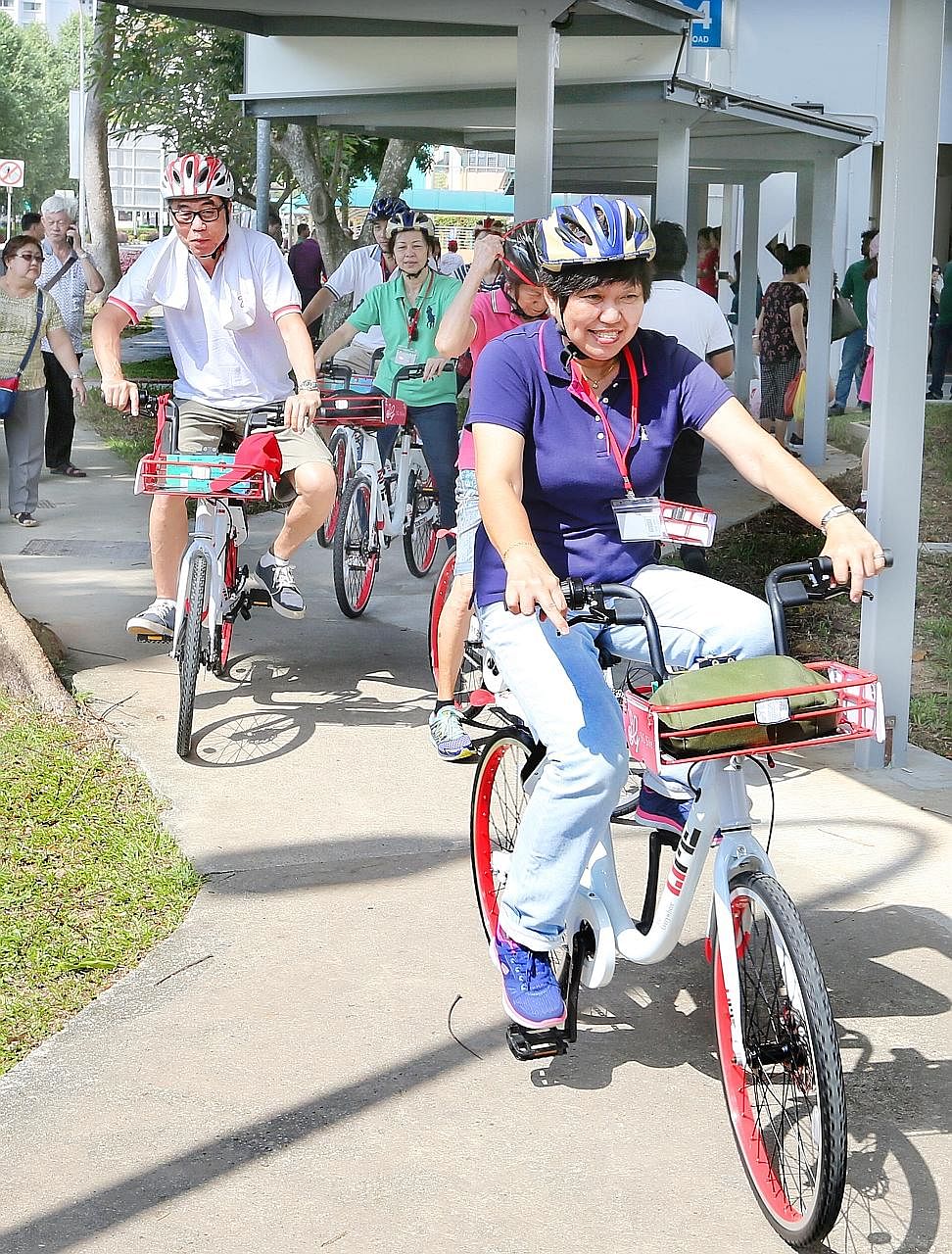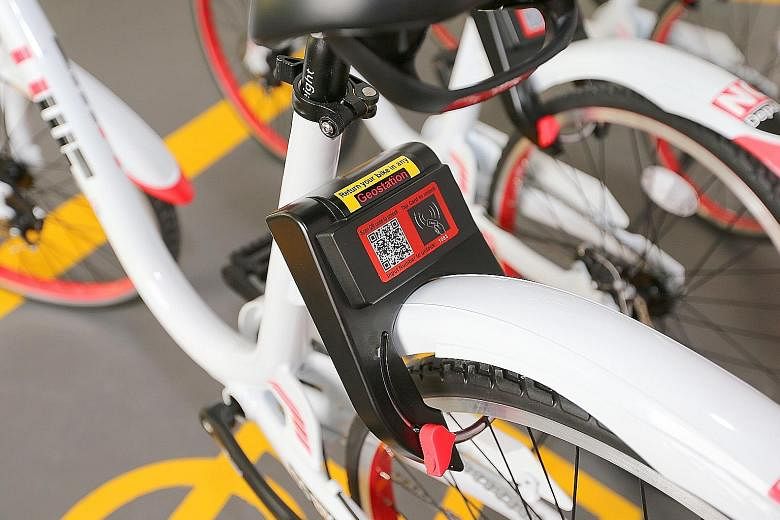The newest bicycle-sharing firm to hit the market, SG Bike, will be using geofencing to push cyclists to park their two-wheelers within a set physical boundary or risk a fine.
The other three bike-sharing companies here said they will also be adopting the technology, but have not decided whether they will impose penalties.
Experts tell The Straits Times that they are cautiously optimistic that the use of geofencing will solve indiscriminate parking, and that the threat of a fine may actually nudge users to behave.
SG Bike, which was launched yesterday, will have users park their bicycles around a device called a "geostation", which emits a radio- frequency identification field that recognises the firm's bicycles parked nearby. The field's radius ranges from 5m to 25m around each geostation, and the parking zone is marked by a painted yellow box. The range of geostations in Housing Board void decks is 5m.
If a bicycle is parked outside the zone at the end of use, it will emit an alarm and the user's app will notify him to move the bike into the zone, or he will be penalised. ST understands that the penalty, which has yet to be decided, will range from $2 to $5.
SG Bike marketing director Benjamin Oh said: "As long as we provide enough geostations around the community, users just have to take (a bit of) effort to push the bicycles to the proper parking spots. Therefore, the chances of them having to face a penalty fee is greatly reduced."
Ofo, oBike and Mobike said they are planning to implement similar geofencing technologies.

oBike general manager Elgin Ee said the firm will roll out GPS-based geofencing by the end of the year, while the other two firms did not give a timeline.
Mr Lawrence Cao, head of Ofo's Asia-Pacific business, said town councils such as Jurong-Clementi Town Council and Ang Mo Kio Town Council will each have about 30 of its parking areas, with geofencing technology installed.
SG Bike's service is now limited to Holland-Bukit Panjang town, where around 300 bicycles and geostations will be placed around MRT stations, HDB blocks and bus stops by the end of the month.
Holland-Bukit Panjang residents who sign up for an SG Bike account before Sept 15 can enjoy free rides for a month. The firm said it will expand its network of geostations and bicycles to Sembawang and Nee Soon in the next few weeks.
Dr Teo Ho Pin, Mayor of North West District, said at the launch yesterday that Holland-Bukit Panjang Town Council was chosen for the start of the service because Bukit Panjang town is "quite compact".
"The farthest point from (anywhere within) our town to the MRT station is about 3km, so we feel that with this distance we are able to encourage more people to use shared bicycles," he said.
Mr Khaw Boon Wan, Coordinating Minister for Infrastructure and Minister for Transport, was also at the launch and at the opening ceremony of the bicycle- sharing service at Block 124, Pending Road.
Geofencing plus fine 'may work'
Indiscriminate parking of shared bicycles by users has been an issue in recent months after the bicycles were introduced this year. The two-wheelers, typically unlocked using a mobile app, do not need to be returned to fixed docking stations. As a result, some have been strewn on footpaths and at the exits of private condominium estates, Land Transport Authority officers said in a report in June.
National University of Singapore transport researcher Lee Der Horng said a combination of geofencing and a fine may work well. But the bicycle firms would also have to closely collaborate with government agencies and bodies such as malls and town councils to allocate enough parking areas for cyclists. He added that introducing and enforcing geofencing might lead to bicycles clustering in places where they are not needed, such as MRT stations during the morning rush hour, leaving a lack of two-wheelers in residential areas.
Singapore University of Social Sciences transport researcher Park Byung Joon said: "Fines or monetary penalties have proven to be effective in Singapore to encourage, or rather enforce, a certain type of behaviour. Although it remains to be seen whether geofencing will solve the parking problem, I believe there is a high chance of it succeeding."


